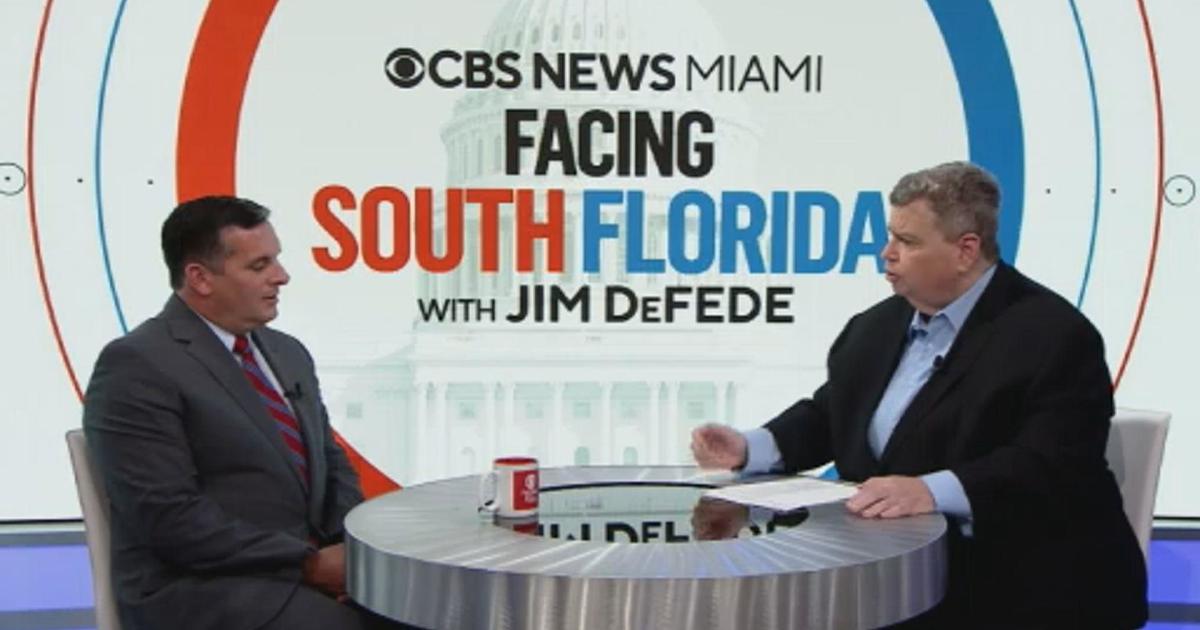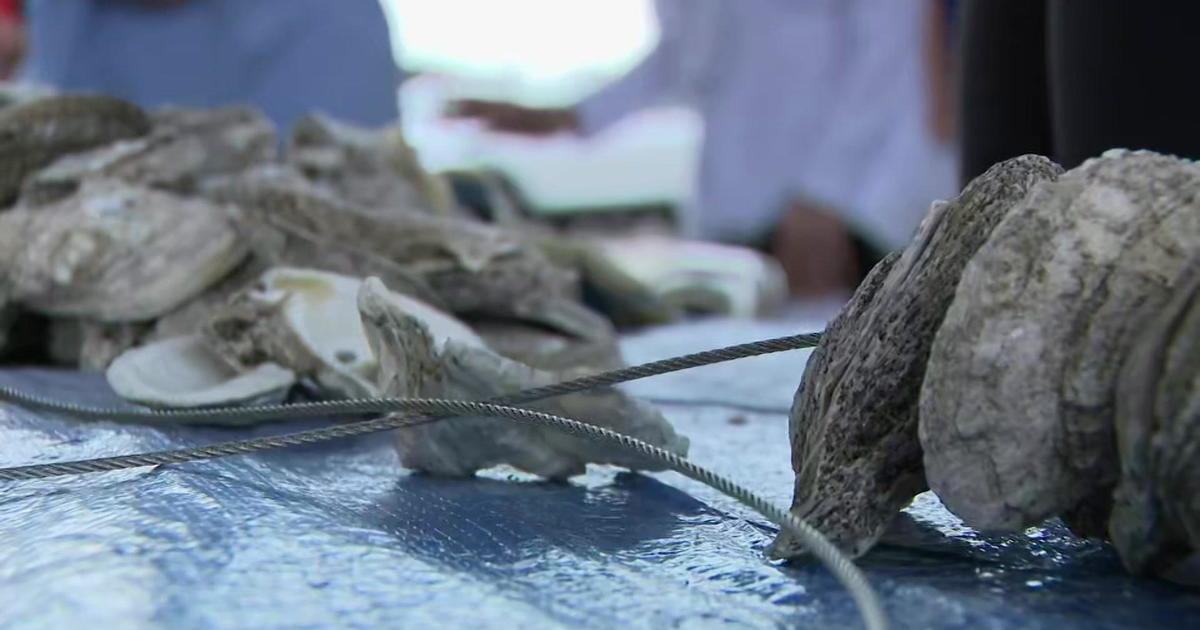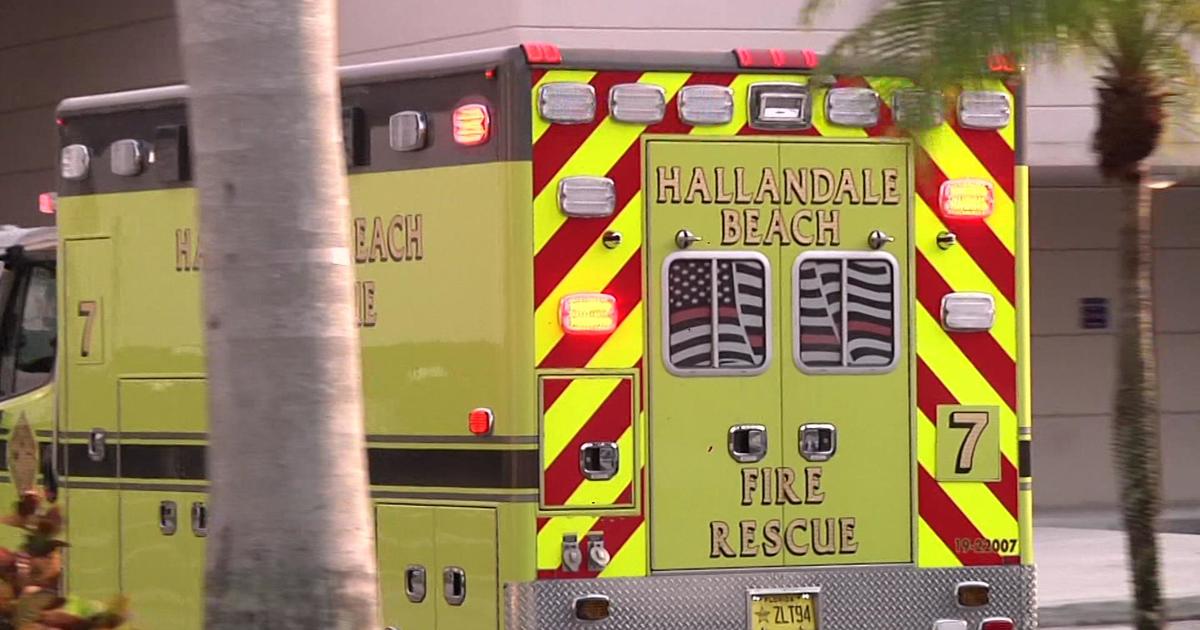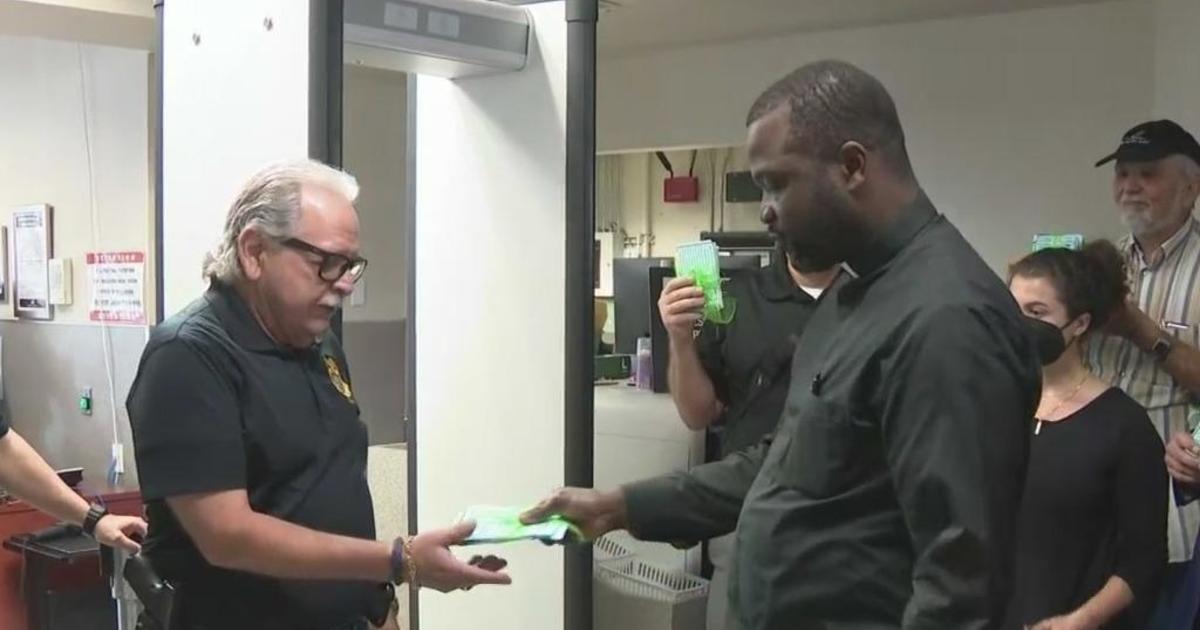Suspects In Massive Drug Heist Make Court Visits
MIAMI (CBSMiami) –One of the men charged in the biggest pharmaceutical heist in U.S. history is out on bond tonight after posting bond.
Perdro Rangel was given a granted a $50,000 bond this morning in federal court in Fort Lauderdale. He's one of 5 men who appeared in federal court Friday, they're accused in playing a role in allegedly running a major pharmaceutical theft ring that targeted warehouses and tractor-trailers around the country.
One by one, 5 of the men charged in the biggest pharmaceutical heist in US history appeared in federal court Friday, their Fort Lauderdale court appearances the first stop of a long trip through the legal system for their role in allegedly running a major pharmaceutical theft ring that targeted warehouses and tractor-trailers around the country.
The Miami U.S. attorney's office announced the indictments and arrests Thursday following a three year undercover investigation that centered in South Florida but stretched across the country.
The four other men in court on Friday were Carlos Valdes, 43, of Hialeah Gardens, Suhong Wu, 42, of Miami, Ernesto Romero Vidal, 46, of Hallandale Beach, and Abel Mesa Samper, 39, of Miami.
The other suspects named in the indictment are Amaury Villa, 37, of Miami, Michael Rangel, 38, of Hialeah, Geovanni Gonzalez, 40, of Hialeah, Pedro L. Rangel, 27, of Miami, Yanni A. Sanchez, 39, of Hialeah, and Leonardo Manuel Guerra, 43, of Clewiston.
One theft involved an Eli Lilly warehouse in Connecticut in 2010, is considered the largest pharmaceutical drug heist in the nation. More than $75 million in various medications were stolen in that heist.
The 18-count indictment released Thursday is the culmination of what investigators called Operation Southern Hospitality which targeted the sale and distribution of stolen pharmaceuticals. All 11 of those charged are from South Florida. They are in custody and thousands of boxes of medications were recovered.
As investigators tracked the scheme, they say members of the theft ring based in South Florida robbed warehouses and trucks of everything from cancer drugs to epilepsy treatments, which were brought to South Florida and sold, some for pennies on the dollar.
The FBI said as the thefts grew into the tens of millions of dollars, the drugs and other goods kept flowing into South Florida, and the gang got bigger.
"The significance of taking this case down today was that these individuals were the ringleaders. They were going across the country ripping off these warehouses and these trailer trucks and there was no stopping them in sight."
"We recovered 100% of the medications that were stolen in this case," said Wilfredo Ferrer, the US Attorney for the Southern District of Florida at a news conference Thursday afternoon. "That's what makes this operation so successful and that's why the agents and the officers involved here should be applauded for their incredible investigative work, because if it wasn't for them, we wouldn't be sitting here telling you that we got 100%."
The South Florida gang members taken into custody were processed at FBI headquarters in North Miami Dade.
Sources have named the ringleader as Roberto Garcia-Amador who is listed in the indictment, but members of the task force said there were multiple ringleaders they decline to identify.
A number of them made initial appearances in various federal or local courts Thursday. Court appearances for others are scheduled for Friday, and around the country, others were arrested for their role in the massive theft ring.
Charges include conspiracy to sell stolen goods, sales of stolen goods, concealing or storing stolen goods and conspiracy to sell and dispose stolen goods, according to the indictment.
It was the stolen drugs which most worried the task force, because in many cases efforts were made to sell them to sources that could have placed the drugs back into access by doctors, where investigators believe people could have been put in danger.
"The reason these scenarios are very dangerous is that these medications could be reintroduced back into the real chain of supply for these medications, and if they have been out of the supply and haven't been refrigerated, they haven't been properly stored in any fashion, imagine having these medications that are to treat these serious ailment and the consumer has no idea that these have been out of the chain for months, could lose its potency, it could have been tampered with," said Ferrer. "Nationwide, we have seen where scenarios like this have caused serious consequences."
He was particularly proud that because of the investigation, none of the stolen drugs made it to the public. The pharmaceuticals taken from Eli Lilly's warehouse were recovered and never entered the pharmaceutical distribution channels.
"For more than two years, Lilly has cooperated with this criminal investigation – providing important information to federal and local authorities to help piece together the details of the theft," said Maria Crowe, President, Manufacturing Operations, Eli Lilly and Company.
Crowe said Lilly plans to destroy the remaining products when they are no longer needed as evidence.
Investigators said the gang was highly sophisticated and not only responsible for stealing millions from pharmaceutical companies in Connecticut, Virginia and New Jersey, but also hijacking trucks and stealing $20 million in cigarettes, liquor and 69 thousand cell phones.
In a 2010 interview with CBS News, two Miami men said they've worked for these kinds of rings and stole pharmaceuticals using cargo trucks.
"It's very easy," said one trucker.
"My job is to sell the merchandise," said another.
That merchandise, the FBI says, included cancer medications. If not stored properly, the meds could be ineffective -- or even kill someone.
CBS asked one of the thieves if he was concerned about re-selling bad meds.
"No, because you are in it for the money," said the thief.
Nobody was ever hurt in the multi-million dollar heists, according to sources.
The heist in Connecticut was described as one of the biggest pharmaceutical heists in history. The burglars took enough drugs to fill a tractor-trailer. Most of the drugs stolen were psychiatric drugs, such as Zyprexa and Cymbalta, as well as the anti-clotting drug Effient and the injectable cancer drugs Gemzar and Alimta.



